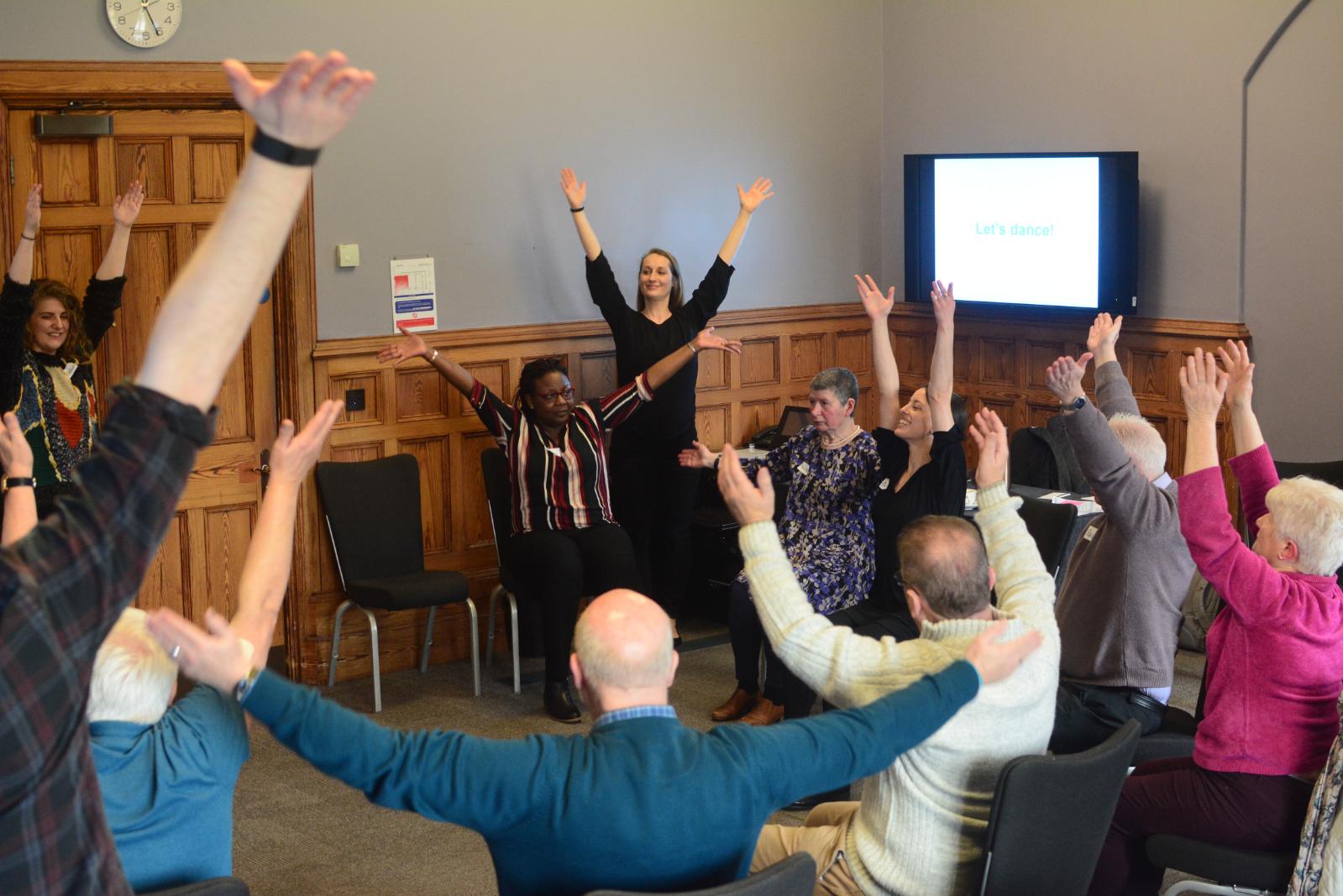School of Psychology collaborates with Parkinson's U.K.
Co-Designing Aspects of a Dance and Exercise Intervention with People with Parkinson’s Through Patient and Public Involvement Activities

On 19 February 2018, I hosted a focus group in collaboration with Parkinson’s U.K. in order to gather feedback on my upcoming research project that will investigate the efficacy of a dance program for people with Parkinson’s. This event was generously funded by the Parkinson’s U.K. Research Involvement Award, which provides hands-on support from the Parkinson’s U.K. Research Involvement Team in developing patient and public involvement (PPI) activities.
INVOLVE, the advisory group that supports public involvement in the NHS, defines PPI as “research being carried out ‘with’ or ‘by’ members of the public rather than ‘to’, ‘about’ or ‘for’ them.” Thus, the focus group provided an opportunity for people with Parkinson’s to become actively involved in my project, to provide feedback on the research protocol, and to communicate their opinions of dance research. By sharing their experiences with Parkinson’s and their reactions to my research ideas, the PPI volunteers provided insights that will help me to design my study so that it is practical, relevant and accessible to the people with Parkinson’s who will be taking part.
My project will involve a 12-week dance intervention, a significant time commitment, so it was invaluable to hear the attendees’ feedback on my ideas, from developing recruitment strategies to approaching sensitive outcome measures. It came up frequently during our discussions that “dance” might be something that people with Parkinson’s find intimidating, so we also did some example dance exercises in order to demonstrate that class material will be challenging yet fun and feasible.
After the focus group, the Parkinson’s U.K. Research Involvement Team helped me to form an Advisory Group of people with Parkinson’s to continue the discussion. The continued involvement of PPI volunteers will ensure that the feedback from the focus group is properly incorporated into my research plans, and it will also provide an opportunity for us to discuss any unresolved issues. So far, Advisory Group members have supported my project by reviewing public facing documents, such as the participant information sheet and consent forms, to ensure that these documents clearly communicate information about the aims of the research and what will be involved for participants.
PPI is increasingly becoming a necessity for researchers who aim to study new drugs or rehabilitative programs, with the rationale being that it can lead to better serving and more sustainable treatments. Through this project, it has become clear to me that PPI is both a valuable and necessary step in designing exercise interventions that involve people with Parkinson’s.
Many thanks to the Parkinson’s U.K. Research Involvement Team, specifically Natasha Ratcliffe and Claire Nolan, for facilitating this opportunity and providing invaluable guidance in the process. Thank you also to my supervisors, Mihalis Doumas and Matthew Rodger, for their support.
If you are a person affected by Parkinson’s, including a partner, carer or family member, there is still an opportunity to get involved! The research team is currently running sample classes that incorporate both the dance and traditional exercises that they will be studying. This is a great opportunity to provide feedback on these classes and help shape research investigating dance, exercise and Parkinson’s.
Where and when?
Queen’s University Belfast’s Physical Education Centre, Studio 3:
Botanic Park, Stranmillis Embankment, Belfast BT9 5EX
Tuesday April 10, 17, 24 11:15-12:15pm
Tuesday May 1, 15, 22 11:30-12:30pm
Tuesday June 12, 19, 26 11:30-12:30pm
Who can take part?
Anyone affected by Parkinson’s, including partners, carers and family members. Taking part in these sample classes in no way obligates you to take part in the future study. No dance experience necessary!
To register your interest, or to find out more, please contact Anna Carapellotti at acarapellotti@qub.ac.uk or 074 5400 5147.
Media
Anna Carapellotti at acarapellotti@qub.ac.uk or 074 5400 5147
